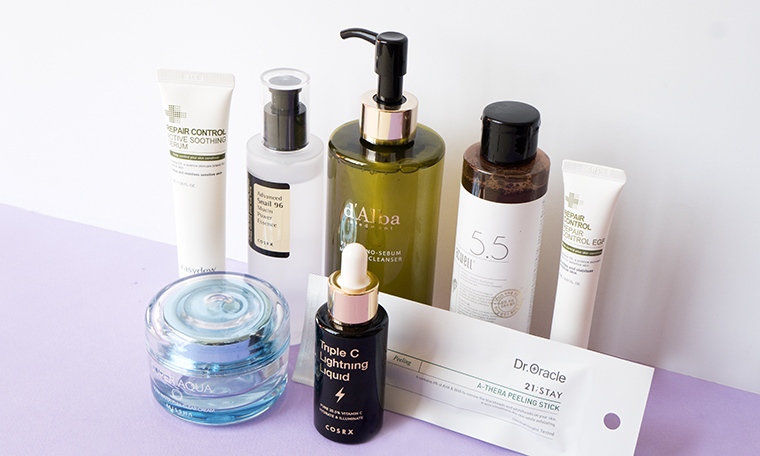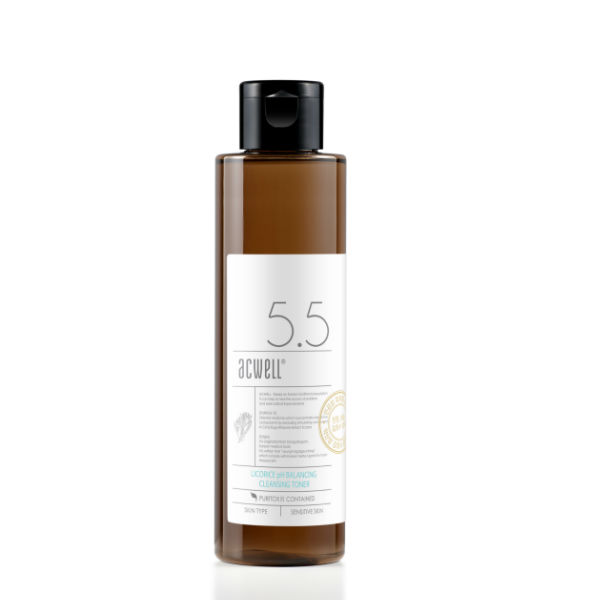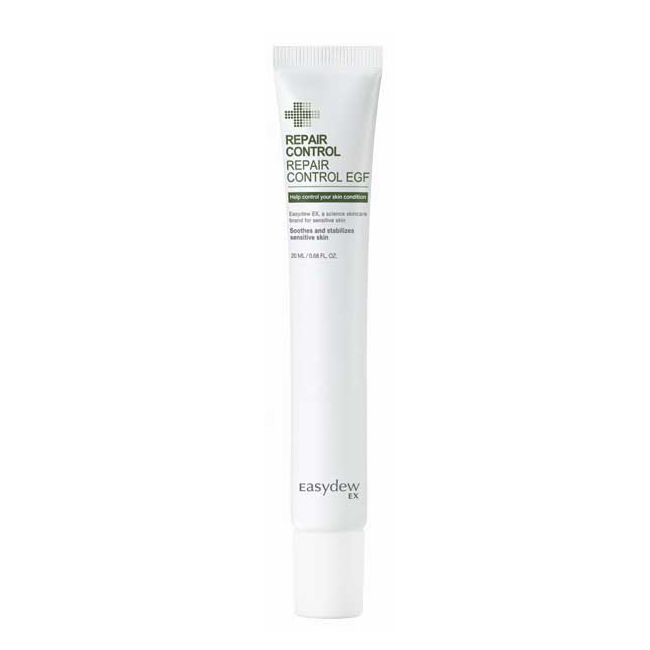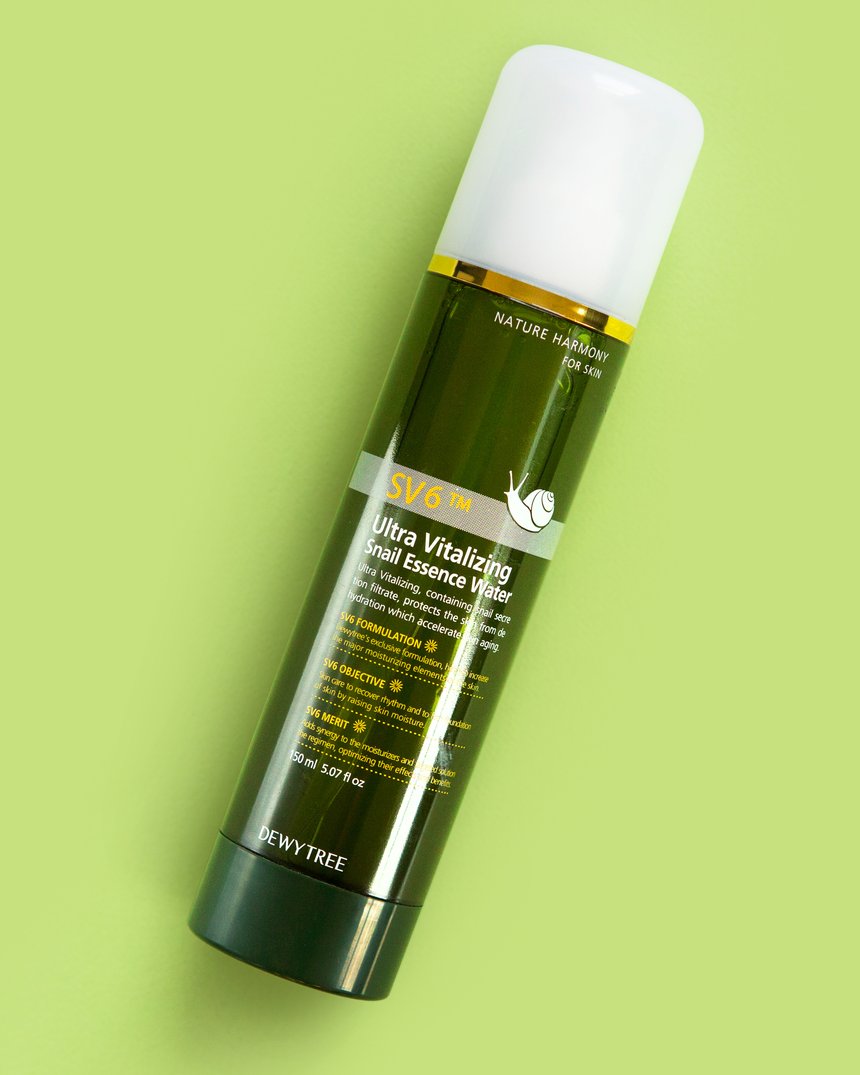The symptoms of PCOS can range, but one of the common ones is acne. Here, we discuss how this disorder affects your skin and the best products to tackle this acne.
PCOS is one of the most common reproductive health disorders that affect women. According to the US Department of Health, it actually affects “one in 10 women of childbearing age” So it would be remiss of us if we didn’t dive deep into what exactly PCOS is and how you can treat its effects. Why is this essential for us to cover? Because acne is a significant factor for women with PCOS.
We reached out to dermatologists Joshua Zeichner and Neil Sadick and asked them everything we could about PCOS and how to treat the skin issues it causes.
What is PCOS?
PCOS stands for Polycystic Ovary Syndrome. Put simply, it’s an endocrine disorder. We tend to associate testosterone with men and progesterone and estrogen in women, but we all have a blend of hormones. Women with PCOS, on the other hand, have higher levels of androgens, or “male” hormones. This disorder manifests around puberty and during the reproductive years of women. The root cause is unknown, but Sadick explains that it’s thought to be “caused by insulin resistance, autoimmune disease, or after you stop taking birth control pills.”
The reason why it’s called Polycystic Ovary Syndrome is because it affects the ovaries. Typically, the ovaries will produce eggs that should be released each month as part of the menstruation cycle. However, in women with PCOS, the egg is affected or it may not be released during ovulation. This can lead to cysts, which are fluid-filled sacs, in the ovaries. This results in a slew of health-related issues like infertility, infrequent or lack of menstruation, excess body and/or facial hair, as well as severe hormonal acne. “Some women with PCOS also suffer from weight gain, especially around the belly,” says Zeichner. “Other serious health effects include high cholesterol, elevated blood pressure, and diabetes.”
What types of skin issues are associated with PCOS?
PCOS has a lot of body-related issues, but for the skin, it can wreak havoc. Sadick explains that “PCOS results in an excess of testosterone, DHEA, and insulin, leading to overactivity of the sebaceous glands and overproduction of oil in the skin pores.” Excess oil is the main culprit when it comes to acne. This overproduction can lead to clogged pores, redness, inflammation and pimples.
The difference between PCOS-related acne and typical hormonal acne is that hormonal acne usually shows up right before your period and clears up soon after. In PCOS, since your hormones are constantly out of whack, you’re prone to more frequent and excessive acne. Besides oily, acne-prone skin, PCOS causes excessive hair growth and dark velvety patches of skin.
Is acne treatment different for PCOS in comparison to other types of acne?
When it comes down to it, acne is acne, so there is no particular product that works better on PCOS-related acne as opposed to regular forms. Sadick explains that “PCOS-dependent acne is more chronic, rather than the regular hormonal acne, and often needs more substantial treatments than regular hormonal acne.” This means acne fighters like salicylic acid and benzoyl peroxide work just as well on PCOS acne.
The main difference is that PCOS calls for a multi-layered approach. Besides investing in acne-fighting products, lifestyle changes including a healthier diet, medication, and weight loss are imperative to acne treatment. This is unlike regular acne which may go away with products alone.
How should I treat PCOS-related acne?
For PCOS, you’ll want to stick with gentle but effective skin care routine that will get your oil in check. This doesn’t mean you should rush to the store and purchase every product with a chemical exfoliant in it. Instead, choose soothing, hydrating ones that will repair damaged skin and fight acne.
Here’s a sample routine:
Cleanser
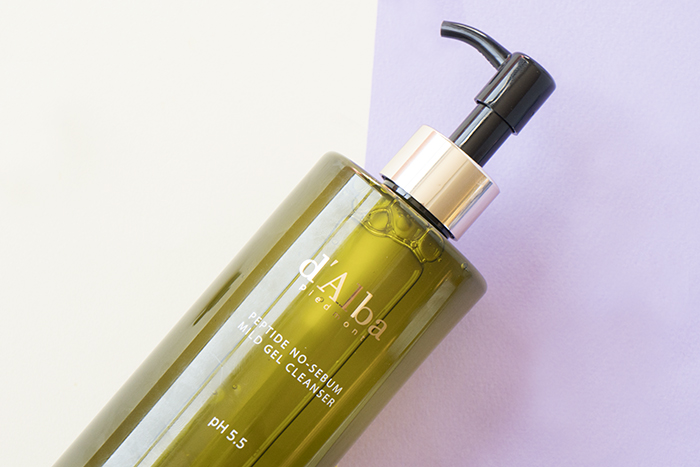
The D’alba Piedmont No-Sebum Mild Gel Cleanser is a gentle second step cleanser. It’s formulated with AHAs and BHAs that dive deep into your pores and clear excess sebum and blackheads. Meanwhile, calamine powder and amino acids help balance oily skin and fight pigmentation. This soothing cleanser balances PCOS-related oily skin and combats the acne it brings.
It does this without stripping your skin of its natural oils. You’ll want to avoid any harsh cleanser that leaves your skin feeling squeaky clean. This might feel great but it eventually triggers your skin to produce more oil.
Toner
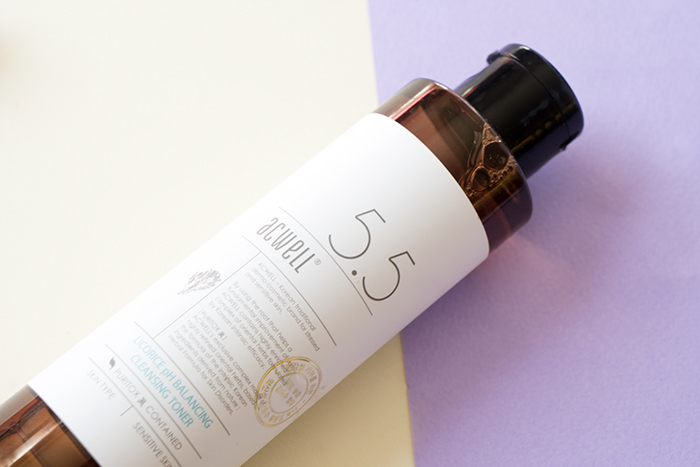
After cleansing, use a soothing toner like the Acwell Licorice pH Balancing Cleansing Toner. This toner is a holy grail for me because it hydrates, brightens, and cleanses the skin of leftover impurities. It contains 10 percent licorice water and peony extract to brighten and even your complexion. It’s also formulated with green tea extract to calm and further reduce pigmentation.
Essence
An essence to try is the Dewytree Ultra Vitalizing Snail Essence Water. It’s lightweight and contains snail secretion filtrate and aloe. Snail mucin is excellent for oily/combination skin as it hydrates without any greasy residue. Plus, it’s rich in vitamins and amino acids that prevent and repair damaged skin. This snail-rich essence will fight acne and the scars it leaves behind.
Treatments
To further combat acne, you have a variety of options. The Dr. Oracle A-Thera Tea Tree Peeling Sticks are one of them. These work by healing and exfoliating the skin. They target active acne spots with a combination of AHAs, BHAs, and tea tree oil extract. These ingredients work in tandem to heal acne and keep it at bay. Plus, they’re super easy to use!
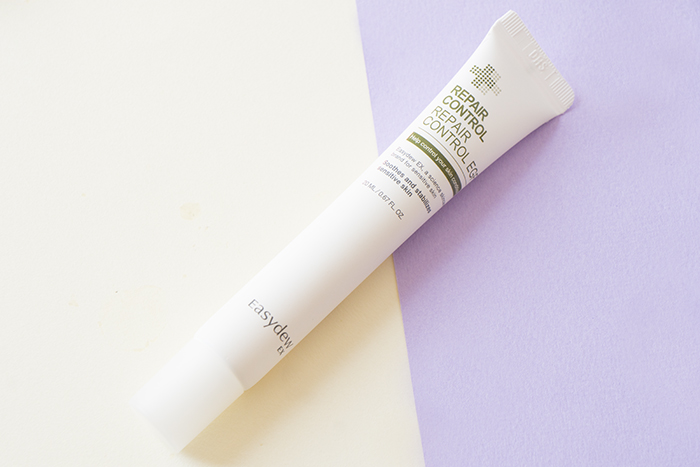
Other options are the Easydew EX Repair Control Active Soothing Serum or the Easydew EX Repair Control EGF. Both are excellent skin repair products, but it depends on whether you want to spot treat or use an all over treatment. The Easydew EX Repair Control Active Soothing Serum contains 3ppm of medical grade EGF, a protein known to repair skin damage and increase cell regeneration. This serum not only repairs the damage but, also smooths fine lines and wrinkles. It also contains hyaluronic acid, allantoin, and panthenol to hydrate and soothe skin.
The other option is the Easydew EX Repair Control EGF. This intense spot treatment fights wrinkles and pigmentation. It contains 10ppm of EGF in comparison to the 3ppm in the soothing serum. Both will work effectively, but the Repair Control EGF packs a bigger punch. This means it will work great on acne scars like pitted or ice pick scars, pigmentation, and wrinkles. It’s also formulated with ceramides and sodium hyaluronate to moisturize skin.
To further brighten uneven skin, you can use the Klairs Freshly Juiced Vitamin C Drop. You can use this along with your other acne treatments or on its own. Vitamin C targets and brightens acne scars left behind by hormonal acne. With regular use, it’ll balance and even out the skin for a glowing look.
Moisturizer
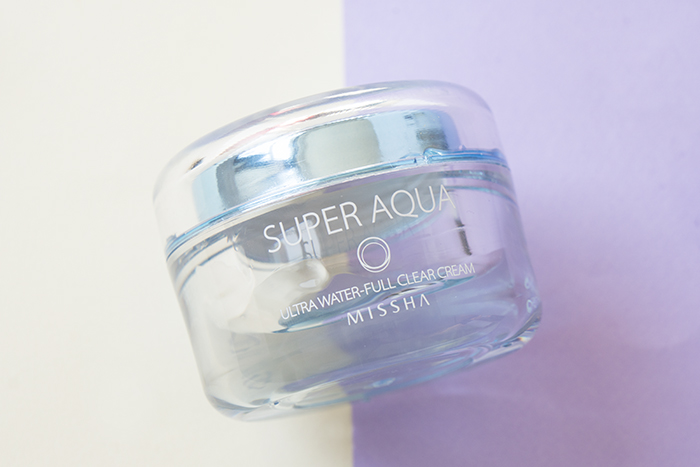
To lock in all that moisture, you can use the Krave Beauty Oat So Simple Water Cream. This water-based cream is perfect for oilier skin types. It contains baobab tree extracts and glacial water to increase moisture retention. It’s also clinically tested to keep skin hydrated for up to 24 hours. Since this is an oil-free formula, it won’t leave your skin feeling greasy. Instead, it will keep excess sebum at bay while leaving your skin plump with hydration.
Bottom Line
Acne is a complex issue, but it can get even more complicated when it comes to PCOS. It’s important to have a routine in place that will both soothe, hydrate and treat your skin. Also remember that PCOS is a disorder that requires a multi-dimensional approach, so it’s worth it to discuss treatment options with your dermatologist first.


